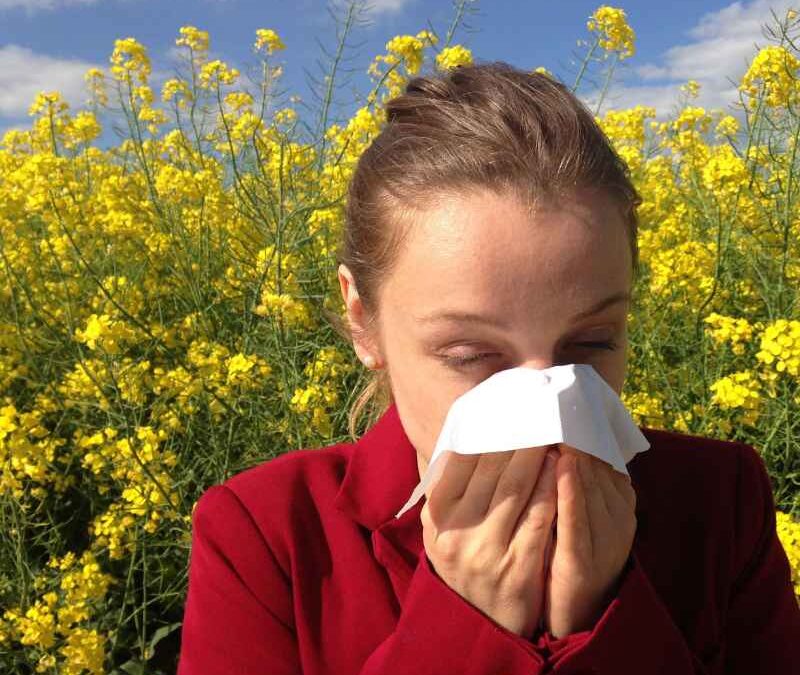Natural Remedies to Alleviate Symptoms
Welcome essential oil and aromatherapy enthusiasts! Allergies can put a damper on our daily lives, causing sneezing, congestion, and discomfort. While there are various over-the-counter medications available, some people prefer natural remedies to alleviate their allergy symptoms. Essential oils have gained popularity for their potential benefits in managing allergies. In this blog post, we will explore different essential oil blends for allergies that can help provide relief and support.
Understanding Allergies and Essential Oils
Allergies occur when our immune system overreacts to harmless substances such as pollen, pet dander, or dust mites. The symptoms can range from mild to severe and often include sneezing, itching, nasal congestion, and watery eyes.* Allergies can be life-threatening always check in with your healthcare provider before starting a new treatment.
Essential oils, derived from plants, have been used for centuries for their therapeutic properties. When it comes to allergies, essential oils can help by reducing inflammation, supporting the immune system, and providing relief from allergy symptoms.
It’s essential to note that not all essential oils are created equal. To ensure optimal results, choose high-quality, pure essential oils that are free from synthetic additives or contaminants.
Top Essential Oils for Allergies
Let’s explore some of the most effective essential oils for allergies and their specific benefits:
1. Lavender Oil
- Known for its calming properties, lavender oil can help reduce stress-related allergy symptoms.
- It also has anti-inflammatory and antihistamine properties, making it beneficial for relieving itching and inflammation caused by allergies.
- Use lavender oil in a diffuser, apply it topically (diluted with a carrier oil), or add a few drops to a warm bath.
2. Peppermint Oil
- Peppermint oil is excellent for clearing nasal congestion and soothing respiratory discomfort caused by allergies.
- Its cooling effect provides relief from nasal itching and can make breathing more comfortable.
- You can inhale peppermint oil directly from the bottle, use it in a diffuser, or dilute it with a carrier oil and apply it to your chest or temples.
3. Eucalyptus Oil
- Eucalyptus oil is renowned for its respiratory benefits and can help ease congestion caused by allergies.
- It has anti-inflammatory properties and can support the respiratory system.
- Use eucalyptus oil in a diffuser, add a few drops to hot water for steam inhalation, or dilute it with a carrier oil and apply it to the chest or back.
4. Tea Tree Oil
- Tea tree oil is known for its antimicrobial properties and can help alleviate allergic skin reactions.
- It can reduce itching and soothe irritated skin caused by allergies.
- Dilute tea tree oil with a carrier oil and apply it to the affected areas or add a few drops to bathwater.
5. Lemon Oil
- Lemon oil has detoxifying properties and can support the immune system.
- It can help alleviate allergy symptoms and boost overall well-being.
- Use lemon oil in a diffuser, inhale it directly, or dilute it with a carrier oil and apply it to the skin (avoid sun exposure after application).
Essential Oil Blends for Allergies
Combining different essential oils can enhance their effects and provide a synergistic blend to combat allergy symptoms. Here are some effective essential oil blends for allergies:
1. Allergy Relief Blend
- Blend 2 drops of lavender oil, 2 drops of peppermint oil, and 2 drops of lemon oil.
- Mix the oils together and dilute them with a carrier oil (such as jojoba or sweet almond oil).
- Apply the blend to your chest, temples, or the back of your neck for relief from allergy symptoms.
2. Respiratory Support Blend
- Blend 2 drops of eucalyptus oil, 2 drops of peppermint oil, and 2 drops of tea tree oil.
- Dilute the oils with a carrier oil and apply the blend to your chest or back.
- You can also add a few drops of the blend to a bowl of hot water for steam inhalation.
3. Calming Allergy Blend
- Blend 3 drops of lavender oil, 2 drops of lemon oil, and 1 drop of tea tree oil.
- Dilute the blend with a carrier oil and apply it to your wrists, temples, or behind your ears.
- This blend can help reduce stress and promote relaxation during allergy flare-ups.
Tips for Using Essential Oils Safely
While essential oils can be beneficial, it’s crucial to use them safely to avoid any adverse reactions. Here are some tips to keep in mind:
- Always dilute essential oils with a carrier oil before applying them to your skin.
- Perform a patch test on a small area of your skin to check for any allergic reactions.
- Consult with a healthcare professional if you have underlying health conditions or are pregnant or nursing.
- Follow the recommended dosage guidelines and usage methods for each essential oil.
Lifestyle and Prevention Tips for Allergy Sufferers
In addition to using essential oils, incorporating these lifestyle changes can help manage allergies:
- Keep your living environment clean and free from allergens by regularly dusting, vacuuming, and using air purifiers.
- Identify and avoid triggers that worsen your allergies, such as specific foods or environmental factors.
- Eat a balanced diet rich in fruits, vegetables, and anti-inflammatory foods to support your immune system.
- Practice stress management techniques like meditation, deep breathing exercises, or yoga to reduce the impact of stress on allergy symptoms.
Conclusion
Essential oils can offer a natural approach to managing allergy symptoms. By incorporating blends such as the Allergy Relief Blend, Respiratory Support Blend, and Calming Allergy Blend into your routine, you can find relief from sneezing, congestion, and itching. Remember to choose high-quality essential oils, use them safely, and make any necessary lifestyle adjustments to minimize allergen exposure. Embrace the power of nature and take control of your allergies with essential oil blends.
For more information on blending essential oils for allergy relief check out this online class dedicated to blending essential oils specifically for allergies. Discover 5 simple and effective aromatherapy blends that can help reduce allergy symptoms and improve overall health.
*Allergies can be a serious medical issue. Always check in with your healthcare provider before starting a new treatment.
Have fun creating a life that naturally makes scents!
Read Next:
Unlock The Power Of Essential Oils
The Benefits of Aromatherapy Cleaning
The information provided here is intended for educational purposes only and is not a substitute for professional medical advice, diagnosis, or treatment.
Some of the links on this website are affiliate links, which means that we may earn a commission if you click on the link or make a purchase using the link. When you make a purchase, the price you pay will be the same whether you use the affiliate link or go directly to the vendor’s website using a non-affiliate link.
As an Amazon associate, I earn from qualifying purchases.



